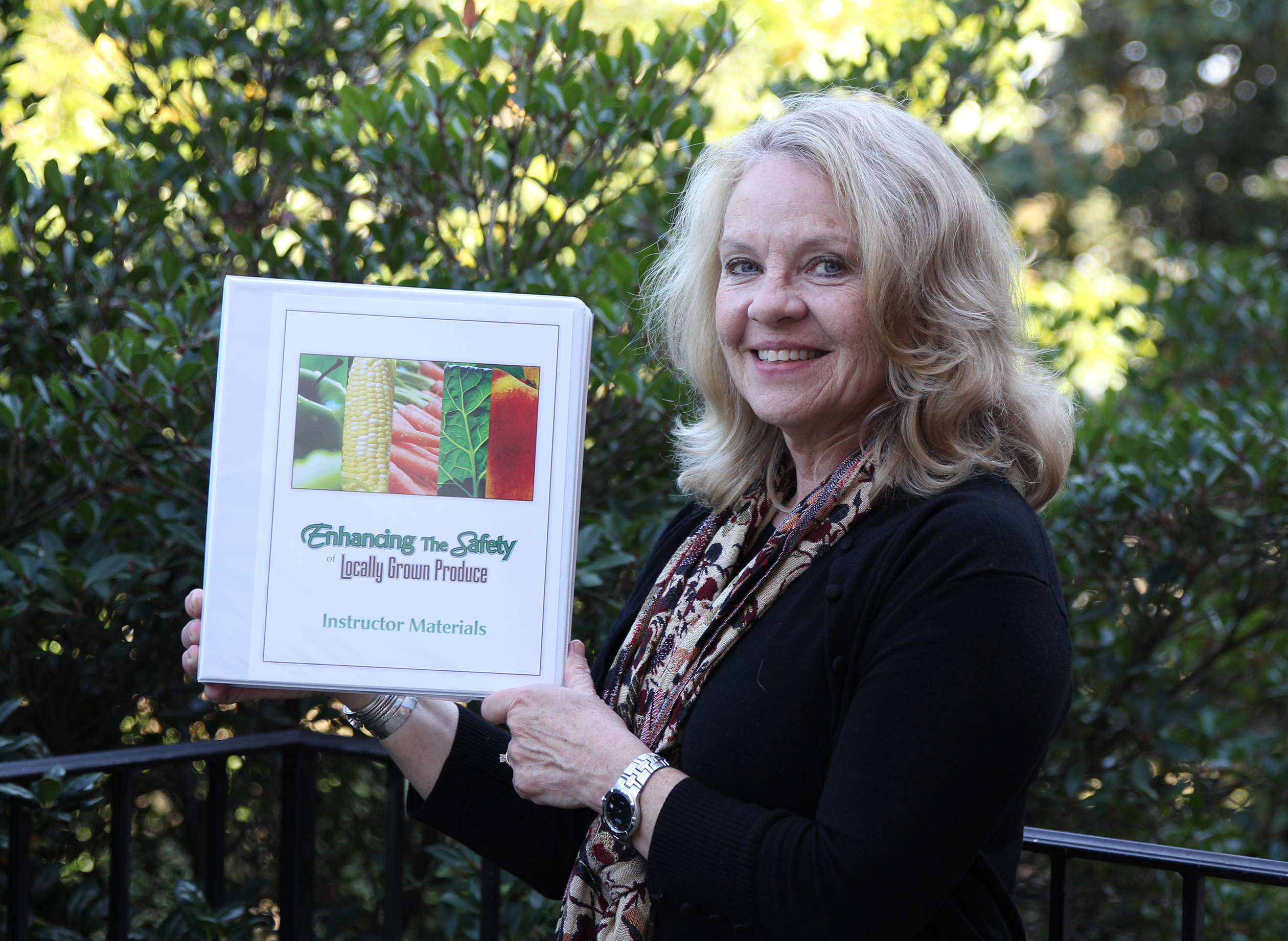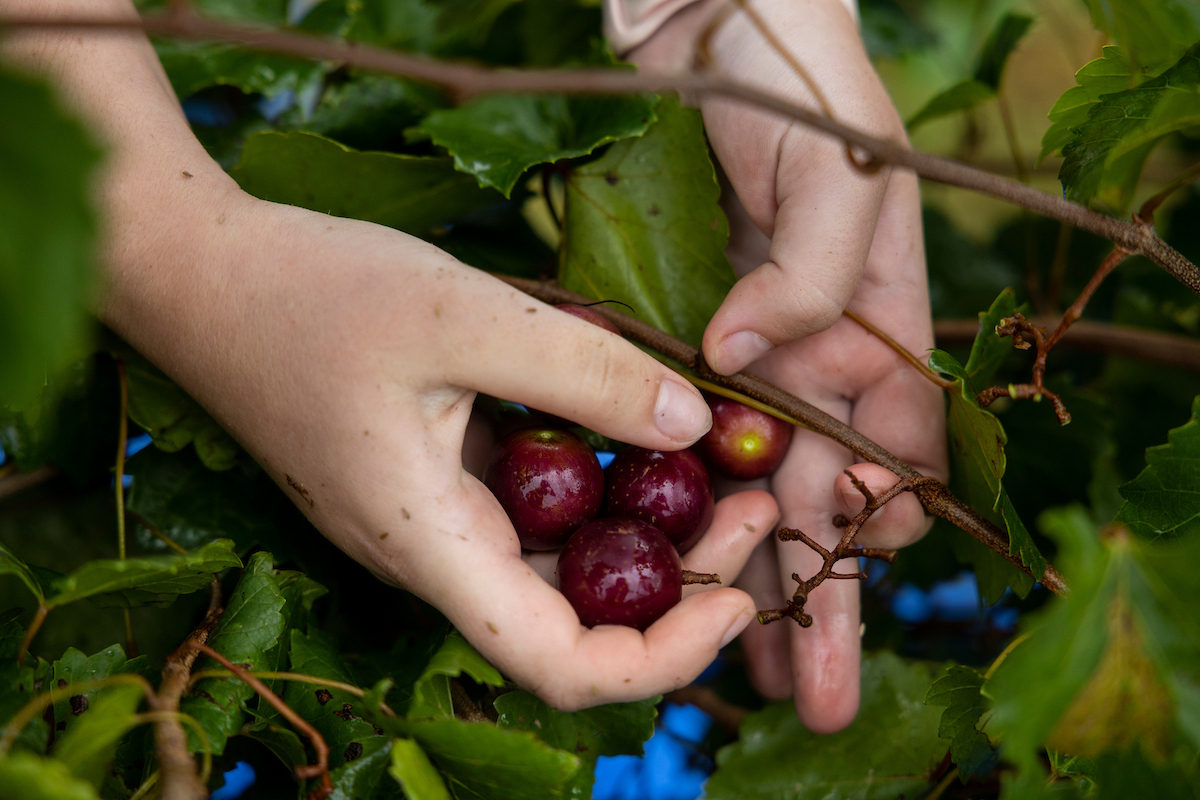Shoppers expect food from local farmers markets to be healthier and safer than comparable items in the grocery store. A group of Southern university scientists are training farmers and market managers to help make that assumption a reality.
A 2013 report by the U.S. Department of Agriculture noted a 400-percent increase in the number of local farmers markets since the early 1990s, according to Judy Harrison, a University of Georgia Extension food safety specialist.
Since 2009, Harrison has led a multi-state project, funded by the USDA, to study food-safety practices on farms and in markets and to create a food-safety curriculum for farmers and market managers. She said the influx of beginning farmers selling at markets emphasizes the need for increased education about food safety.
The project, “Enhancing the Safety of Locally Grown Produce,” recently won the first place Food Safety Award from the National Extension Association of Family and Consumer Sciences.
USDA-backed initiatives, such as the “Know Your Farmer, Know Your Food” and “Farm to School” programs, have helped to create a demand for local produce, Harrison said, giving the curriculum even more relevance.
“If you look at the people who shop at farmers markets, it’s people who think that the food they get there is going to be healthier and safer for them than food from the grocery store,” Harrison said. “We just need to make sure that it is.”
The curriculum includes checklists and fact sheets that cover basic food safety issues for both farmers and market managers. Harrison along with UGA College of Agricultural and Environmental Sciences sustainable agriculture coordinator Julia Gaskin, faculty from the UGA Food Science and Technology Department, and faculty from Virginia Tech and Clemson University developed the curriculum.
Farmers and managers who have implemented the program agree the curriculum is having a positive impact. Between 18 percent and 64 percent of farmers and market managers, depending on the practice, indicated they changed as many as 16 different practices to improve produce safety, according to program evaluation forms.
About 500 farmers and 130 market managers in Georgia, Virginia and South Carolina have been trained in the curriculum. Other states, including Alabama and Tennessee, have also started using the curriculum.
“What we’ve found is that almost 40 percent of the farmers on small farms in our surveys selling [at farmers markets] in these three states – Georgia, Virginia and South Carolina – have been farming three years or less,” Harrison said. “They don’t have a lot of experience farming and, in many cases, are just getting started.”
Some of the “best practices” Harrison recommends for farmers include bacteria testing for irrigation water and water used for washing produce; properly composting manure; and providing sanitation training for farm workers, among others.
Harrison recommends that market managers ask farmers and vendors how products have been grown and handled as well as about the use of manure on food crops, and that they have a food safety plan or food safety specifications for their market.
“I think everybody needs to see it,” said Cheryl Brady, market manager for the Monroe Farmers Market, who was trained in the curriculum in 2012. “It definitely brought some issues to our attention.”
The curriculum also includes a DVD that features interviews with farmers and market managers who already use “best practices,” and presentations that provide details about food safety issues such as foodborne illnesses, like E. coli, that can trigger significant health and economic concerns.
Harrison said the next step is to convert the curriculum into online self-study modules that will be available on the UGA Extension website.
“Safe production and marketing of local produce can help protect consumers from foodborne illnesses, reduce medical costs associated with these illnesses and prevent devastating losses to farmers,” Harrison said. “It can also help local agricultural markets flourish, because it’s a way to keep money in the pockets of local farmers.”





